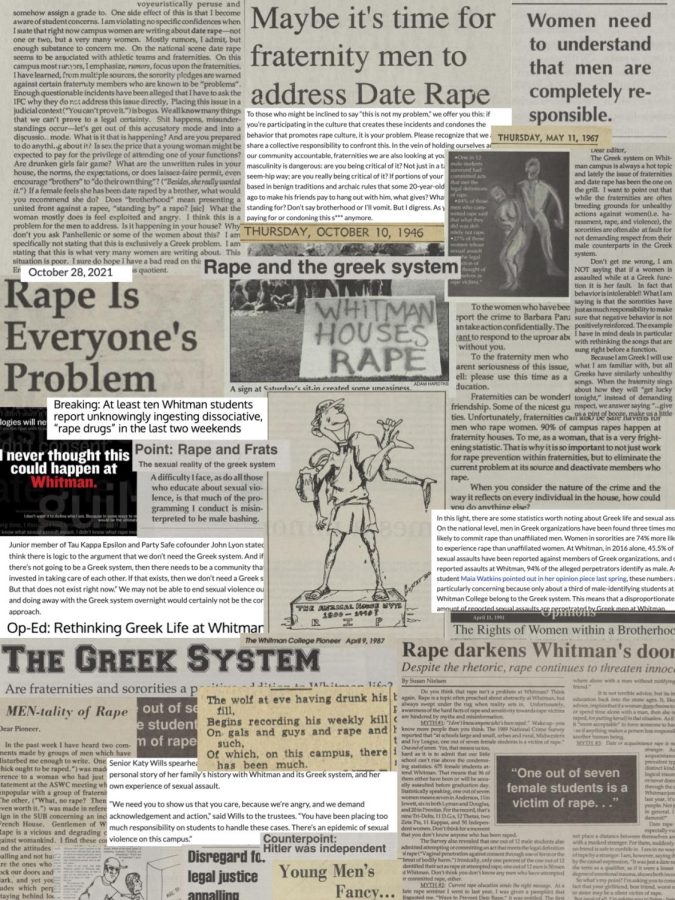EDITOR,
Whitman students are admitted to this rigorous academic environment for a number of reasons, among them being our ability to sift through information and think critically. Every day we deal with an onslaught of information from our peers, our parents and the media. In this digital age we navigate websites, send text messages, emails, and make phone calls. Our worlds are filled with the input and the output of information of all types.
The familiarity of Whitman students with determining what information is important and accurate in combination with our intellectual abilities, allows us to be excellent critical thinkers. I highly value the ability of Whitman students to think on their own. It fosters discussions which greatly enhance what we learn in the classroom by promoting critical thinking outside of the classroom.
For the past two years I have been involved in ASWC Programming. In this capacity it has been important to do our best to bring a diverse range of voices to Whitman (of course we also have to deal with scheduling, pricing, and other factors that can limit our options). Sometimes this has meant bringing events which are controversial. Oftentimes when this happens I try to make sure that it is someone whom people will listen to without getting defensive. For instance, last year Andrew Sullivan brought a mix of ideas, being both conservative and homosexual. My goal is to get people to listen and think critically about ideas and information which is presented.
Events put on by ASWC Programming are never meant to offend or make students uncomfortable, rather they aim to inform and entertain. With the range of views which do exist on Whitman’s campus: many of which are more subtle then political lean: sometimes people do not agree with the ideas presented during an event. While we welcome ideas to make events positive for all students (and encourage input), I hope that when students disagree with a message being presented that they use this information constructively. I strongly feel that Whitman students are capable of interpreting information for themselves and am optimistic that they conscientiously explore a range of opinions and ideas.
– Rachel Stein ’09

